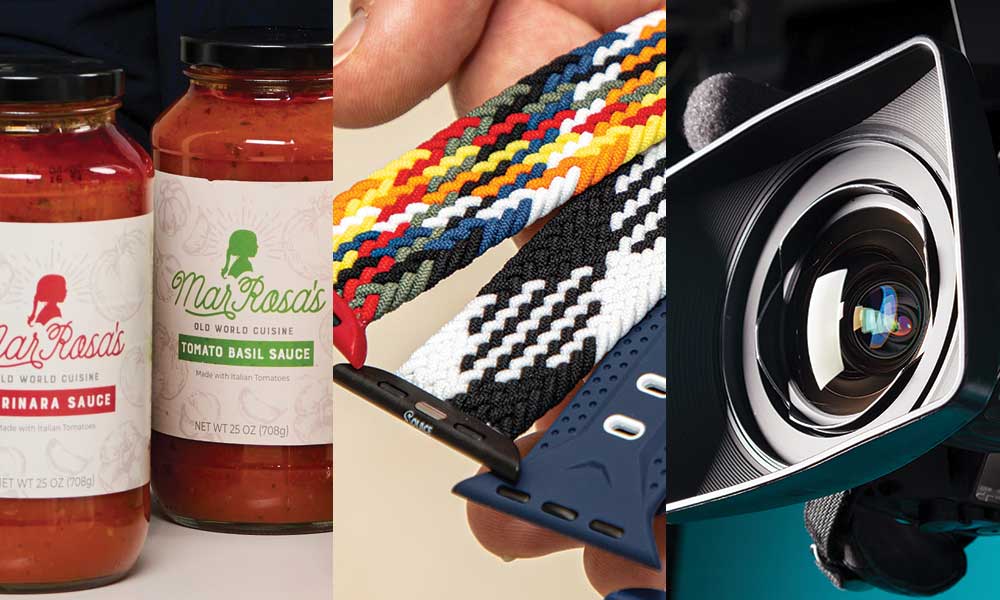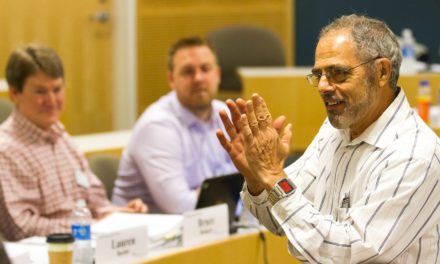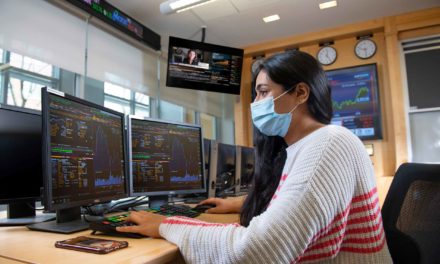By Andy Smith
Chad Held and Kohl Henry have come a long way since they launched their own lawn-mowing business as middle schoolers in Johnstown, Pennsylvania. Today, after taking two innovative entrepreneurship courses and earning their undergraduate degrees in Corporate Innovation and Entrepreneurship (CIENT) at the Penn State Smeal College of Business, they once again find themselves business partners.
Their SolaceBands company sells stylish, woven Apple Watch bands. They also partly own another online company that sells headbands for women, and they are exploring some e-commerce opportunities.
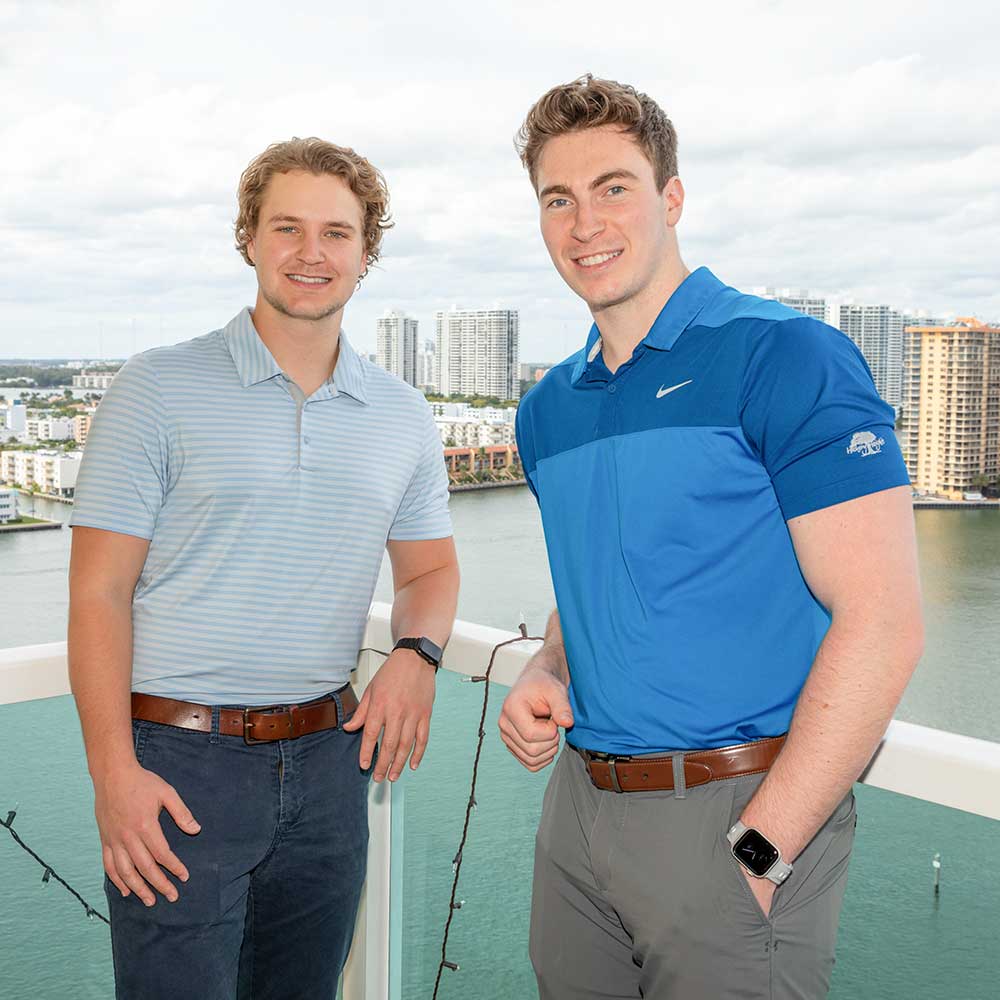
Chad Held and Kohl Henry
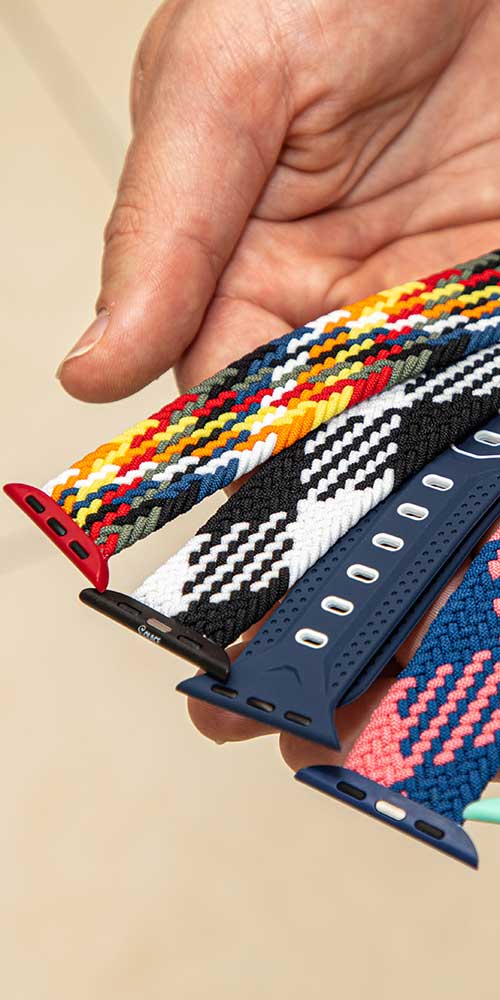
“The entrepreneurship classes and the support we received from Smeal were invaluable,” Held says.
Smeal unveiled the CIENT major in 2015. Two years ago, it introduced a two-course, senior-level entrepreneurship sequence. By May 2022, a total of 30 students will have completed the two courses.
Like Held and Henry, many of the students have already launched businesses that produce and sell everything from spine-protecting race car seat inserts to pasta sauce, regionally customized hotel snack boxes, and horror films.
Each spring — months before their first fall class — new students meet oneon- one with Jeanette K. Miller, clinical assistant professor of entrepreneurship and associate director of Smeal’s Farrell Center for Corporate Innovation and Entrepreneurship, who directs the CIENT major and teaches both courses.
Learn more about Chad and Kohl’s Apple watchband company, Solace Bands.
“I help them focus their ideas,” says Miller, who views herself more as a mentor than lecturer. “By August, when we start the first class, they’re typically ready to begin launching their business, if they haven’t already.”
The fall course, MGMT 485: Entrepreneurial Opportunity Creation, focuses on planning and, if need be, creating prototypes.
During the spring semester course, MGMT 486: Entrepreneurial Investment and Resource Acquisition, Miller helps students create detailed financial business models and determine how best to fund their business — either through traditional investment channels, such as banking, personal debt, or venture capital, or via emerging investment vehicles such as crowdfunding, angel investors, and accelerators. They also learn how to pitch their ventures and how to create promotional videos or websites.
“My students tell me all the time that they expected to learn a lot from running their own businesses,” Miller says. “But because all of their ventures are so different, they actually learn a lot from the other students as well. Actively learning from each other is really powerful.”

Jeanette Miller
Giving Students the Resources and Skills to Succeed
Before joining Penn State in 2018, Miller spent more than a dozen years working abroad, primarily in Eastern Europe, focusing on economic development and small business startups. For nearly three years, she was the U.S. Trade and Development Agency’s director of business development for Southeast Europe. She also worked there for multinational management consultant firms and was a partner in a Serbian winery.
In addition to soaking in Miller’s experience, students also have access to a robust suite of additional resources for starting a business, including: Penn State’s Small Business Development Center; the Happy Valley Launchbox accelerator program; entrepreneurship librarians at the Schreyer Business Library to assist in competitive analysis and business positioning research; a patent librarian; the PSU intellectual property law clinic; 3-D printing capabilities; a suite of Adobe apps; a green room to create videos; and website creation software.
In addition, students who complete each of the two entrepreneurship management classes also receive two $750 scholarships to help fund their businesses.
“This links our educational support with financial support that can jumpstart their business in the early stages of their startup,” says Shawn Clark, the Michael J. Farrell Endowed Professor for Entrepreneurship and director of the Farrell Center for Corporate Innovation and Entrepreneurship. “We want to help our students get serious about some of their ideas and play them out.
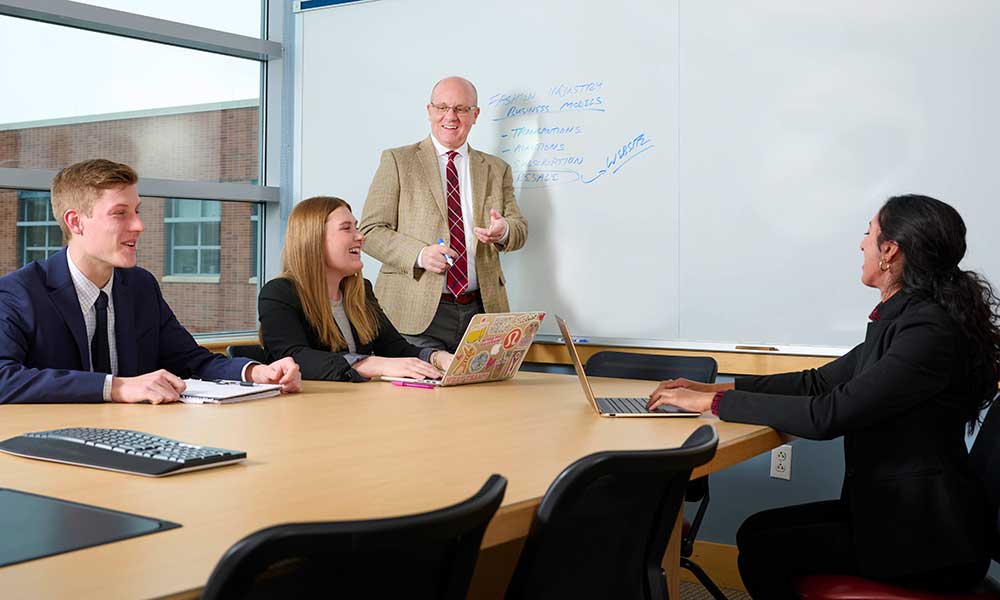
“During these two courses, the students take an idea they have for the marketplace and try to bring it to life, which involves thinking about finance, intellectual property and legal matters, as well as markets and customers, human resources and technology,” he continues. “Given all the decisions they’re trying to make, it’s really an amazing experience when students are trying to launch a new venture.”
About 30 percent of the undergrads hope to make their businesses their primary source of income after graduation. Others view their businesses as “a side hustle,” according to Miller.
“Regardless,” she says, “we’re creating an opportunity for students to learn by running their own businesses. If they fail, they can move on. But even if they go on to full-time corporate jobs, they are learning how to identify opportunities to create value, and they can use this problem-solving, agile learning in the corporate environment.
“A few years later, if they then want to start their own venture, they will have the skills, and hopefully the confidence, to do it,” she adds.
Hits (and Misses) Provide Valuable Experience
Marcella Rose Marino, a senior CIENT major, used her time at home during last spring’s partially virtual semester to launch MarRosa’s Old World Cuisine.
Inspired by her father Joe, an Italian food distributor, she set up a limited liability corporation (LLC); worked with a Long Island food production company to create less acidic tomato sauces; and designed a brand label that features a silhouette of herself created when she was a 5-year-old at Disney World.
Since May, she has sold more than 6,000 jars of marinara, vodka, and basil pasta sauce in about 50 stores in eastern Pennsylvania, New York, New Jersey and Maryland.
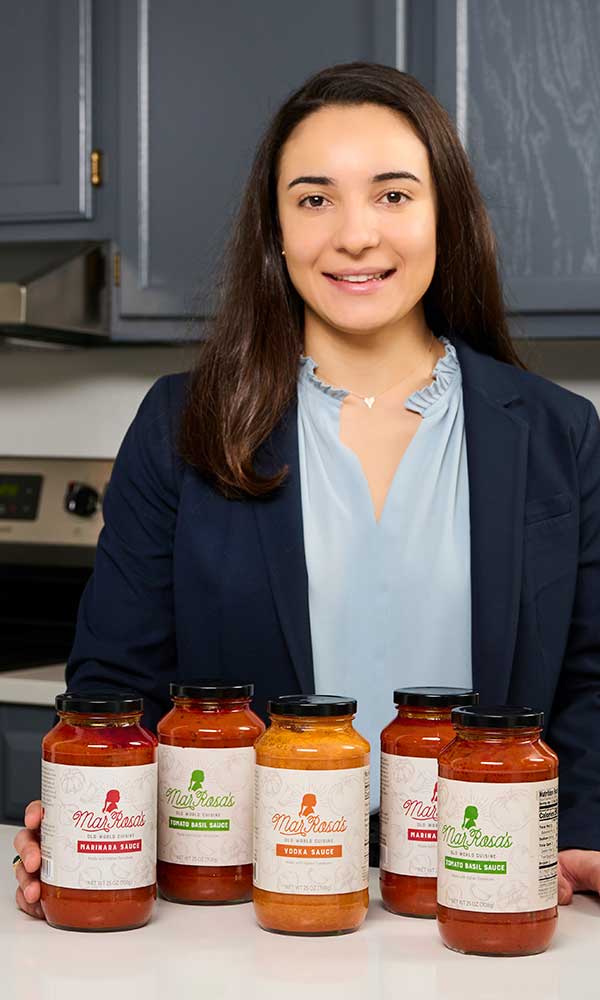
Marcella Rose Marino
Learn more about MarRosa’s Old World Cuisine.
“Dr. Miller continues to provide us with different resources to expand our businesses,” says Marino, who — even though she expects to take a full-time job after graduation — wants to continue growing MarRosa’s.
Fifth-year senior Wyatt Bumbarger, a dual film production-CIENT major, used the classes to launch Hunter Run Road Productions, a film production company whose first full-length film is a horror/ thriller/dark comedy titled “A Deer in the Woods.”
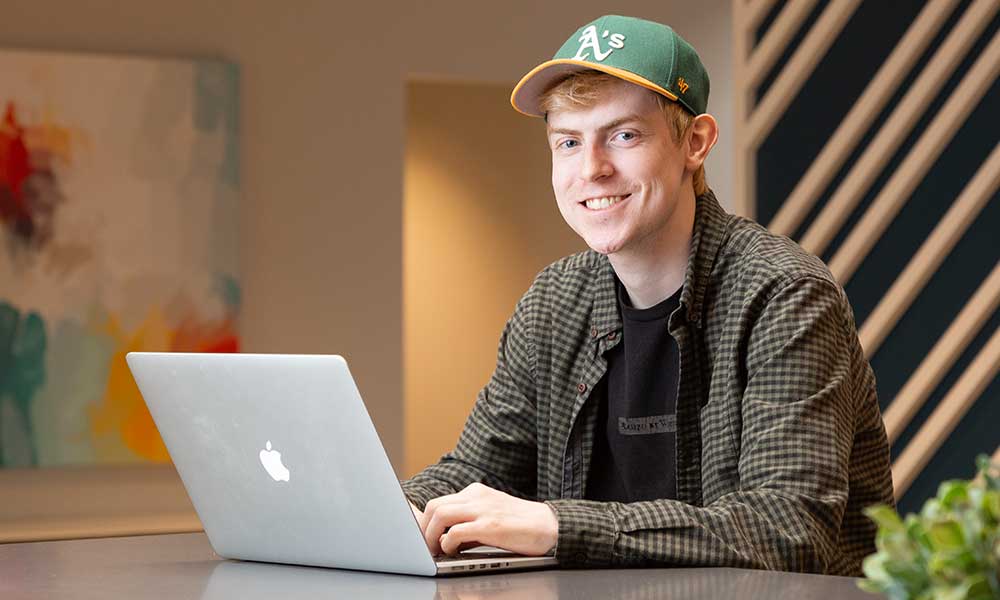
Wyatt Bumbarger
Featuring an all-Penn State student cast and crew of about 20, Bumbarger wrote, directed, and produced the film. It will debut on Thursday, April 28 at 7 p.m.. at the State Theater in State College.
When his first movie idea fizzled due to COVID-19 restrictions, Miller helped him revise his business plan.
“The first semester I learned real-world business techniques about how to set up and run a business and, during the second semester, I got the opportunity to actually do it,” says Bumbarger, who used both the $1,500 worth of scholarships and crowdfunding to help finance the production.
Learn more about “A Deer in the Woods” on Instagram and Facebook.
While he was still a student, Held’s in-class efforts to develop a portable laptop charger failed, in part because an independent contractor he hired failed to deliver a usable 3-D prototype.
“But it was a great learning experience,” he says. “I gave a speech in class about the importance of doing a thorough background check before you hire anyone.”
After graduation, he took a good paying job as an Aldi supermarket district manager in Maryland — which he enjoyed, until last spring. That’s when he started helping Henry, his childhood friend and lawn-mowing business partner, with his just-hatched SolaceBand company. Several months later, Held quit his job.
“I started realizing how much we could make running our own e-commerce business full-time,” he says. “We’ve never looked back.”
For his partner Henry, the entrepreneurship courses were crucial.
“To be able to do it in real life, to have a professor with resources who has been through it herself and, on top of that, to get a stipend to help you, it’s all an incredibly unique opportunity,” says Henry. “It definitely helped push me to go out and do something on my own after I graduated.”
